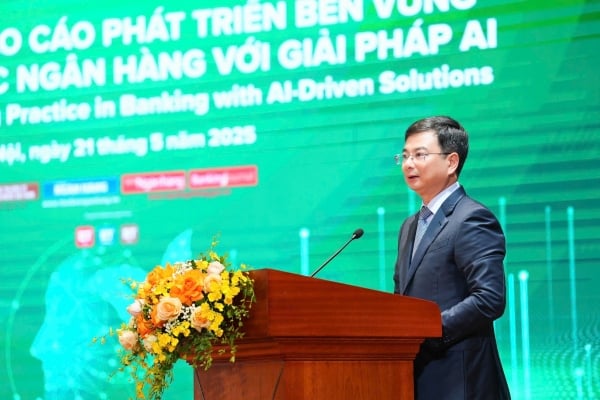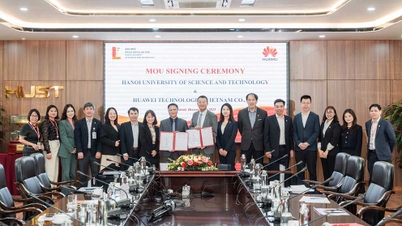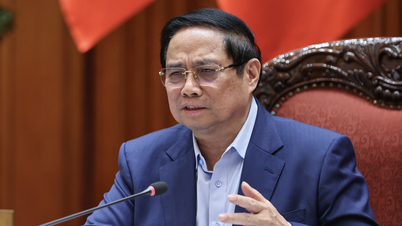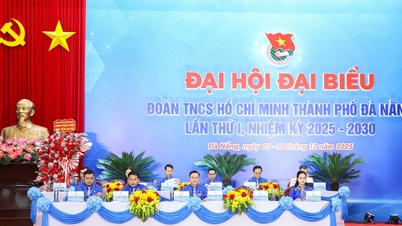At the seminar “Practicing sustainable development reporting in the banking sector with AI solutions” on May 21, Deputy Governor of the State Bank of Vietnam Pham Thanh Ha said that 2024 saw a record high of 33 organizations publishing independent sustainable development reports. Almost all credit institutions have integrated sustainable development content into their annual reports as required.
Notably, 13-15 commercial banks have published independent sustainability reports, and this number will continue to increase in 2024 and the first months of 2025, with 6 more banks participating.
Along with this trend, green credit activities also recorded positive results. By the end of the first quarter of 2025, 58 credit institutions had generated green credit outstanding loans with a total value of over VND 704,244 billion, an increase of 3.57% compared to the end of 2024, accounting for 4.3% of the total outstanding loans of the whole economy . In particular, outstanding loans focused on renewable energy, clean energy (over 37%) and green agriculture (over 29%).
The growth rate of green credit balance in the period 2017-2024 reached an average of 21.2%/year, much higher than the general credit growth rate.

Despite positive progress, Deputy Governor Pham Thanh Ha assessed that the practice and publication of sustainable development reports in the banking industry is still in its early stages. Challenges such as incomplete legal frameworks, lack of resources, limitations in data analysis capacity, as well as effective and transparent methods of collecting and processing information remain significant barriers.
“Therefore, the application of AI and digital technology is a potential solution to the above problems. AI not only helps automate data collection and synthesis, but also supports in-depth analysis, trend detection and recommendations to improve reporting quality and sustainable management efficiency,” Mr. Ha emphasized.
From a business perspective, Dr. Le Hung Cuong - Deputy General Directorof FPT Digital affirmed: "AI is the key to helping businesses overcome ESG (governance, social, environmental) data challenges, simplify reporting activities, thereby unlocking green capital sources from financial institutions and banks".
According to Mr. Cuong, ESG data in enterprises is currently scattered across many departments, lacks standardization and is not in real time. Manual reporting is time-consuming, prone to errors and difficult to meet international standard frameworks such as GRI or ISSB. Meanwhile, AI systems can integrate data from many sources (ERP, IoT, financial reports...), automatically standardize and compare with international criteria, helping to ensure the reliability and transparency of ESG reports.

While not denying the benefits of AI, Mike Suffield, Director of Policy and Insights at the Association of Chartered Certified Accountants (ACCA), warned that ethical risks can arise at every “touchpoint” between AI and data. Using inappropriate, outdated or biased training data can distort the analysis results, threatening the integrity of the report.
The expert stressed that ethical principles, including integrity, objectivity, professional competence, confidentiality and professional conduct, should be the foundation when applying AI to sustainability reporting. He called on organizations to implement it step by step, from improving internal governance to building close links between data, finance and technology departments.
Meanwhile, Mr. Tran Anh Quy – Head of Policy Credit Department, Department of Credit for Economic Sectors, State Bank of Vietnam – pointed out that the implementation of AI-based sustainable development reports at credit institutions (CIs) still faces many difficulties. Investment and consulting costs are still high, while there is a lack of a clear legal framework for building a green investment portfolio.
Therefore, Mr. Quy proposed to soon issue a national "green" classification list, promote international cooperation and receive technical and capital support. At the same time, improve the quality of consulting, training and resource allocation so that credit institutions can practice and publish sustainable development reports more effectively.
Source: https://doanhnghiepvn.vn/cong-nghe/go-kho-trong-quan-tri-ben-vung-nho-cong-nghe-ai/20250521045511999




![[Photo] National Assembly Chairman Tran Thanh Man attends the VinFuture 2025 Award Ceremony](/_next/image?url=https%3A%2F%2Fvphoto.vietnam.vn%2Fthumb%2F1200x675%2Fvietnam%2Fresource%2FIMAGE%2F2025%2F12%2F05%2F1764951162416_2628509768338816493-6995-jpg.webp&w=3840&q=75)
![[Photo] 60th Anniversary of the Founding of the Vietnam Association of Photographic Artists](/_next/image?url=https%3A%2F%2Fvphoto.vietnam.vn%2Fthumb%2F1200x675%2Fvietnam%2Fresource%2FIMAGE%2F2025%2F12%2F05%2F1764935864512_a1-bnd-0841-9740-jpg.webp&w=3840&q=75)



































































































Comment (0)